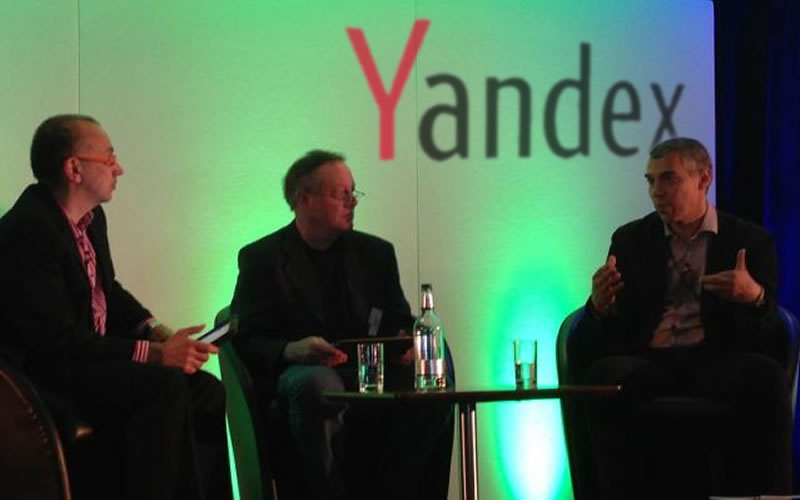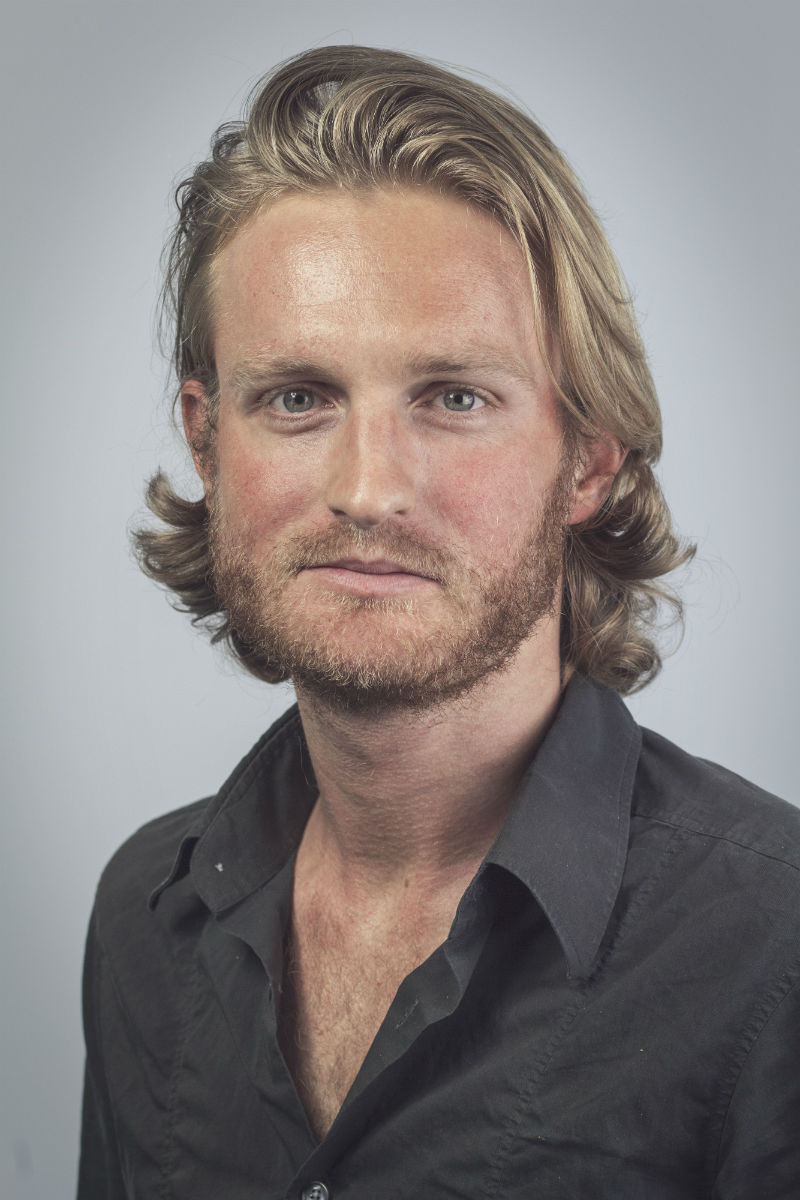 In this week’s much anticipated keynote at ISS London, Chris Sherman and Andy Atkins-Krüger were talking to co-founder and CTO of Yandex, Ilya Segalovich, about everything from user privacy to search personalisation and Yandex’s international operations and ambitions.
In this week’s much anticipated keynote at ISS London, Chris Sherman and Andy Atkins-Krüger were talking to co-founder and CTO of Yandex, Ilya Segalovich, about everything from user privacy to search personalisation and Yandex’s international operations and ambitions.
Here is a modified (and summarised) transcript of the fireside chat.
What makes Yandex different from other search engines?
Ilya: We try not to focus so much on what makes us different from others, but rather how we can improve the user experience and add value to our customers’ lives.
There seems to be a fairly widespread perception that Yandex is purely a Russian copy of Google. What is Yandex doing to overcome that perception?
Ilya: It is important for me to stress that the perception inside CIS (former Soviet Republics) is very different compared to what it is outside the region. In Russia we do not have to prove that we are innovative leaders, much like Google do not have to prove anything in most of the world’s countries where they are the dominating force.
We have been the leading player for years in Russia and operate the number one search, shopping, news and payment platform – just to name some of our popular services. The environment, however, is changing within Russia and is becoming much more competitive. For many years we barely had any competition. But this is drastically changing now, with new platform and browser providers proliferating.
Yandex’s superb handling of the Russian language is less of a differentiating factor today than it used to be. How do you now differentiate yourself from Google in Russia?
Ilya: Geo-targeting is something we have put a lot of effort into. If you search from Moscow and we return a result from say Vladivostok, it is just as irrelevant as a Brazilian result with shipping only to Brazil would be to a user in Portugal (editor’s note: reference to a prior geo-targeting example by Andy Atkins-Krüger). We have done a classification by region, which was a major differentiator when it was first introduced, as this was done some time before Google started serving geo-localised search results in Russia. On average we have 3-5 local results in the SERP for a query with local intent.
But in general, and in line with what I said earlier, we always try to start with the true needs of the user and improve his/her experience. For example, since 1997 we have had links to other search engines at the bottom of our search engine result pages. Why? For the sheer reason that users benefit from it. If they do not find what they are looking for on Yandex, maybe Google or Bing can provide it.
You have also recently started personalising results. Please tell us about that.
Ilya: We found that hyper personalised results are not what users want. Some degree of personalisation, though, did improve relevance and CTR, but only when personalisation was moderated.
Our personalisation algorithm primarily relies on a user’s search history. To put it differently, we will take into account what a user has searched for in the past, what his/her interests are etc. and serve up personalised results accordingly.
Can users switch off personalisation or regulate the “degree” of personalisation?
Ilya: Yes, they can. But no one really does.
Online user privacy has become an increasingly contentious topic over the past few years. Who owns the data? Users or search engines?
Ilya: It is a very interesting question – kind of a philosophical question. Or a moral question, if you will.
However, it is not particularly clear to me what we define as data? Is the search query considered user data, for example? What exactly is tagged as data, and what is not?
As a search engine, we can choose to say that all the data belongs to us. Having said that, I think users should be able to deal with their own data. Your search history and clicks should belong to you. That is an ethical standpoint. For example, we recently introduced the possibility for users to export their search data to another search engine, e.g. from Yandex to Google.
What is Yandex’s approach to investments and acquisitions?
Ilya: Acquiring teams with experience, e.g. small start-ups, is an important piece in the puzzle in terms of staying innovative and competitive. We particularly need to invest in areas like machine translation and voice recognition, however, our investments are not always related to search but include many other areas where we see future potential.
What does Yandex do to help search marketers outside of Russia?
Ilya: We have seen an increasing number of advertisers from abroad showing interest in Russia. As a result, we have developed English interfaces for all of our key tools. We have opened an office in Switzerland to reach out to European advertisers. We have also set up offices in the US and Turkey.
Mobile clearly has become an important battlefield. Where is Yandex going?
Ilya: Smartphone penetration is still relatively modest in Russia, though it has to be said that we are starting to see a lot more transactions from these devices.
We have a set of highly popular applications, for example Yandex.Maps which is the top maps app in Russia. We are also aware that the user experience is very different on mobile devices. Of course, because of the significantly reduced screen size, usability becomes an area that needs rethinking. A good mobile browser, mobile interface and overall web experience therefore are top priorities for us. You do not want to pinch and zoom for every bit of information you are looking for. Yandex.Shell for Android, which is an intuitive interface that makes it easy to customise your various screens on Android devices, is one such example of our efforts into mobile interfaces.
Let’s look internationally for a moment. You launched in Turkey recently. How is that venture going? What are you doing to conquer that market?
Ilya: The idea was; if there is a monopoly where a single player commands 97% to 98% of the entire market – in this case Google – there is room for a good alternative. And while our impact in the market is not happening at the speed we initially was hoping for, we are seeing marked increases in returning Turkish users to the Yandex search platform, indicating that we are gradually making inroads.
We have small successes in many areas in Turkey, and awareness is gradually building. More importantly perhaps, we have learned A LOT from our Turkey experience; from tackling the complex Turkish language, the first language outside of the Cyrillic region, to growing our understanding of what it takes to successfully enter a foreign market.
But for us to go somewhere, there has to be business in it. Potentially we could do 20 different languages. But how do we monetise it? There simply has to be a business purpose for us to follow through internationally.
As you begin to move more aggressively internationally, what is your strategy for competitors striking back at you in the markets you are entering?
Ilya: For us, it is exciting. We do not have any fear of the competition. In fact, we welcome it. From a user perspective, competition is always positive as it inevitably raises the bar.
Do you look towards Baidu and what they do? Could China be a potential destination?
Ilya: Well, I like Baidu’s Box Computing as a concept. But China is a separate case. Things are very different there. Censorship, government protection, user behaviour, etc. It is not really a destination that is appearing on our radar at the moment.








